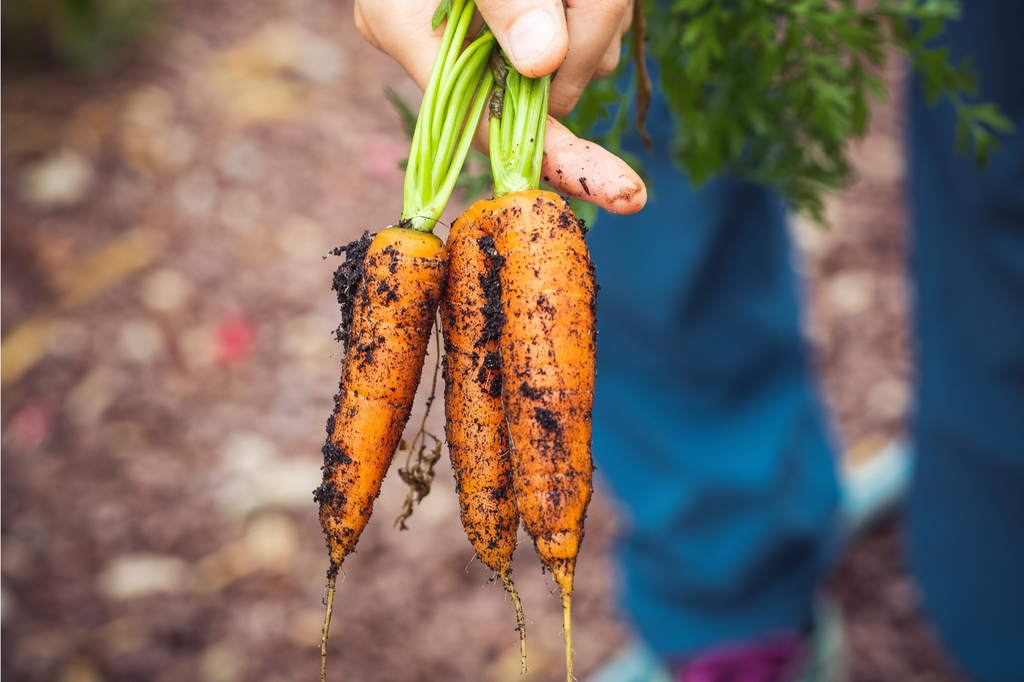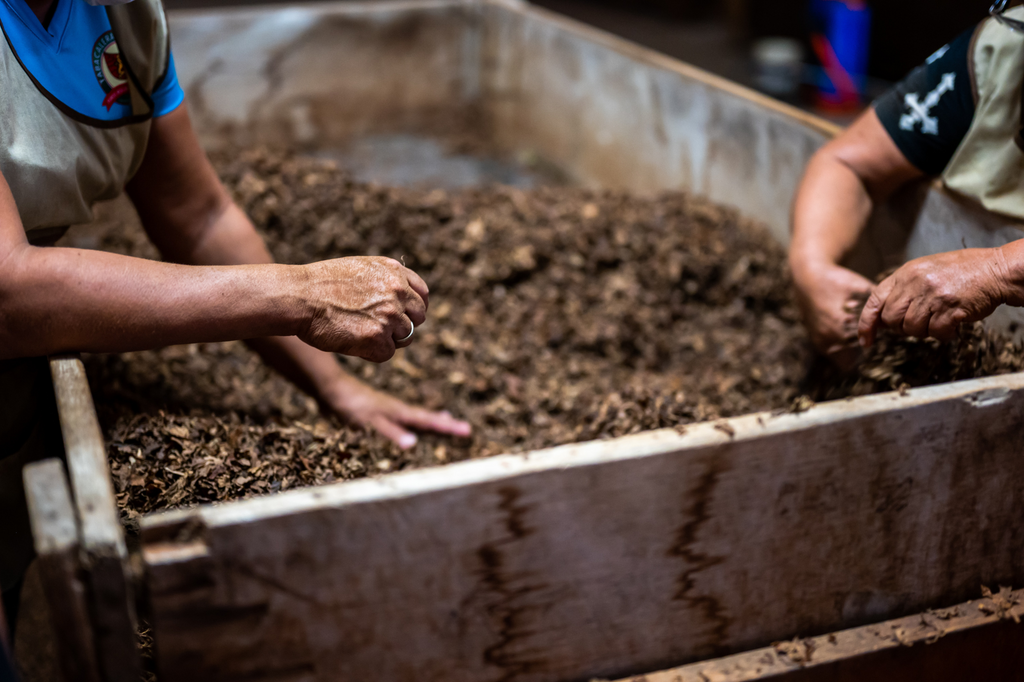Returning to more sustainable consumption involves small daily actions. Among them, creating a home vegetable garden is a step that is both rewarding and eco-responsible. Not only can you grow your own organic vegetables, but you also have the opportunity to significantly reduce your waste. A zero-waste vegetable garden, combined with permaculture and composting practices, can allow you to move towards food self-sufficiency while respecting the environment.

Why choose a zero waste vegetable garden?
A zero waste vegetable garden is part of a global approach to respecting the environment. By growing your own vegetables, you avoid plastic packaging, reduce food transport and produce healthy food, without pesticides or chemicals. In addition, by reusing your organic waste to create compost, you complete the production cycle by giving back to the earth what it has given you.
The benefits of vegetable gardening for the environment and your health
Zero waste gardening has many benefits for both the environment and your health. First of all, you contribute to reducing waste by avoiding non-recyclable packaging. Secondly, the vegetables you grow are free of pesticides, thus providing healthier food for you and your family. At the same time, setting up a composter allows you to recycle your food waste, thus naturally enriching the soil in your vegetable garden. It also reduces your production of organic waste and avoids its incineration or landfill, sources of pollution.

Steps to creating a zero waste vegetable garden
1. Choose the ideal location
The location of your vegetable garden is crucial to ensure your plants grow well. Choose a sunny spot, as most vegetables need six to eight hours of light per day. Also, make sure water is easily accessible for regular watering, while minimizing waste by using eco-friendly irrigation systems, such as drip irrigation.
2. Prepare the soil naturally
For a zero waste vegetable garden, it is essential to prepare your soil naturally. Avoid chemical fertilizers and opt for homemade compost. You can also practice crop rotation and integrate ground cover plants to preserve the quality of the soil. An organic mulch made from straw, dead leaves or grass clippings will help to conserve soil moisture and reduce weed growth.
3. Composting: the essential ally of the eco-responsible garden
Composting is a key step for a zero waste vegetable garden. By recycling your kitchen and garden waste (peelings, coffee grounds, dead leaves, etc.), you produce a natural and free fertilizer. Compost enriches the soil with organic matter, improving its structure and its capacity to retain water, while nourishing your plants.
4. Grow seasonal vegetables that are suited to your region
To reduce your environmental impact, focus on growing seasonal vegetables that are suited to your region. By growing local varieties, you promote biodiversity and minimize the need for water and pesticides. For example, in summer, opt for tomatoes, zucchini and peppers, while in winter, turn to cabbages, spinach and leeks.
5. Reduce water use with eco-responsible techniques
Water is a precious resource, and it is crucial to adopt practices that limit its waste. A drip irrigation system allows you to water your plants in a targeted manner, while reducing losses. Also consider installing rainwater collectors to water your vegetable garden without drawing on drinking water reserves.
6. Recycle and reuse materials
For a zero waste vegetable garden, try to reuse as many materials as possible that you have on hand. For example, you can create your garden boxes with wooden pallets or reuse plastic flower pots to plant your seedlings. Recycling and reuse are pillars of a zero waste approach.

Permaculture and vegetable garden: a natural alliance
Permaculture is an approach to sustainable agriculture that relies on observing and imitating natural ecosystems. By combining permaculture and zero-waste vegetable gardening, you promote self-sufficient and environmentally friendly agriculture. Here are some permaculture principles to apply to your garden:
- Combine plants : Some plants protect each other from pests and promote the growth of others.
- Conserve biodiversity : diversify your plantings to enrich the soil and protect your garden against disease.
- Minimize human intervention : By applying the principles of permaculture, you let nature do its work while maximizing yields.

Tips for reducing waste in the vegetable garden
1. Make your own seeds
Instead of buying new seeds every year, you can harvest your vegetable seeds and replant them. This is a sustainable way to grow your vegetables while reducing the packaging associated with buying seeds.
2. Limit fertilizers and chemicals
Chemical fertilizers and pesticides are not only harmful to the environment, but they also generate toxic waste. Opt for natural methods such as compost, plant manures (nettle, comfrey) or the introduction of beneficial insects to combat pests.
3. Create a zero-waste gardening space
Use second-hand tools and materials or reuse the ones you already have. For example, recycle plastic bottles to make protective covers for your seedlings, or use old wooden boards to make growing trays.

Mistakes to avoid for an eco-responsible vegetable garden
1. Overwatering
Not only is overwatering unnecessary, it can also harm your plants. Water in the morning or late afternoon to avoid rapid evaporation and maximize root absorption.
2. Not anticipating crop rotation
To avoid soil depletion and promote good production, be careful not to grow the same vegetables in the same place from one year to the next. Crop rotation helps maintain soil richness and avoid diseases specific to certain plants.
3. Using non-reusable plastic pots
Single-use plastic pots contribute to plastic pollution. Choose biodegradable or sustainable pots, or reuse existing ones to reduce waste in your vegetable garden.

Conclusion
Creating a zero-waste garden is a tangible and rewarding way to reduce your environmental impact while producing healthy food for your family. By adopting environmentally friendly practices such as permaculture, composting, reusing materials and conserving water, you are contributing to a more sustainable lifestyle. With a little patience and commitment, you will quickly see the benefits, both ecologically and personally.
If you want to go further in your eco-responsible approach, don't hesitate to discover Oceansrespect's zero waste products to continue to reduce your ecological footprint on a daily basis.

FAQ - Frequently Asked Questions
1. How to start a zero waste vegetable garden?
Start by choosing a sunny location, prepare the soil with natural compost, and favor local and seasonal plants. Don't forget to use techniques like mulching to save water and to reuse materials to create your gardening space.
2. What are the benefits of composting for a vegetable garden?
Composting recycles your organic waste into a nutrient-rich natural fertilizer that improves soil quality, promotes plant growth, and reduces the need for chemical fertilizers.
3. Can I practice permaculture in a small space?
Yes, permaculture adapts to all types of spaces, even the smallest. By optimizing the layout of your plants and choosing complementary species, you can create a self-sufficient and sustainable micro-vegetable garden, even on a balcony.


